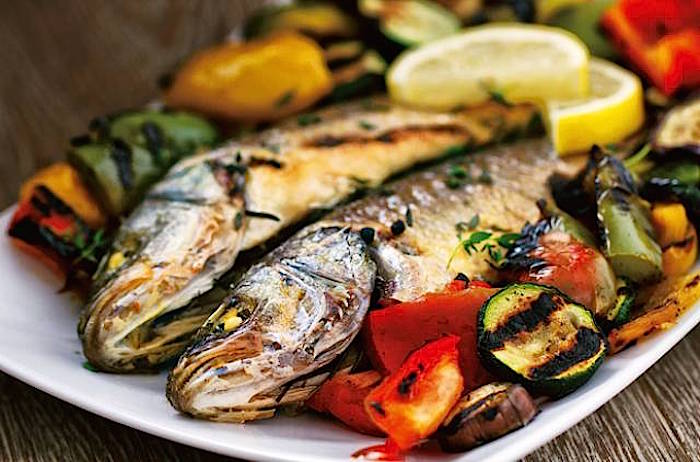 Following a Mediterranean-like diet is associated with losing fewer brain cells due to aging, according to a study published in the October 21, 2015, online issue of Neurology, the medical journal of the American Academy of Neurology. The Mediterranean diet includes eating more fish and plant-based foods and less meats and dairy.
Following a Mediterranean-like diet is associated with losing fewer brain cells due to aging, according to a study published in the October 21, 2015, online issue of Neurology, the medical journal of the American Academy of Neurology. The Mediterranean diet includes eating more fish and plant-based foods and less meats and dairy.
The study found that people following a Mediterranean-like diet had a larger brain volume than people who did not follow a Mediterranean diet. The difference between the two groups was about the same as five years of aging.
“These results are exciting, as they raise the possibility that people may potentially prevent brain shrinking and the effects of aging on the brain simply by following a healthy diet,” said study author Yian Gu, PhD, of Columbia University in New York, NY, and a member of the American Academy of Neurology.
The Mediterranean-like diet in the study includes high intake of vegetables, legumes, fruits, cereals, fish and monounsaturated fatty acids such as olive oil; low intake of saturated fatty acids, dairy products, meat and poultry; and mild to moderate amounts of alcohol. Eating more fish and less meat was associated with less brain shrinkage.
“Eating at least three to five ounces of fish weekly or eating no more than 3.5 ounces of meat daily may provide considerable protection against loss of brain cells equal to about three to four years of aging,” Gu said.
The study involved 674 people with an average age of 80 who did not have dementia. They completed questionnaires about their diet over the past year and then had brain scans an average of seven months after the diet questionnaire was administered. The participants were divided into two groups based on how closely their dietary habits followed the Mediterranean diet principles: those who followed the Mediterranean diet principles in at least five food components (either higher consumption of healthy foods, or lower consumption of unhealthy foods) and those who did not.
The people who more closely followed a Mediterranean-like diet had total brain volume that was 13.11 milliliters larger than those who did not follow the Mediterranean diet. Their gray matter volume was 5.0 milliliters larger, and their white matter volume was 6.41 milliliters larger.
“The magnitude of the association with brain measures was relatively small, but when you consider that eating at least five of the recommended Mediterranean diet components has an association comparable to five years of aging, that is substantial,” Gu said. Gu noted that the study does not prove that the Mediterranean diet prevents brain shrinkage; it shows an association. The study was supported by the National Institutes of Health.
Source: Yian Gu, Adam M. Brickman, Yaakov Stern, Christian G. Habeck, et.al., Mediterranean diet and brain structure in a multiethnic elderly cohort, Neurology.














